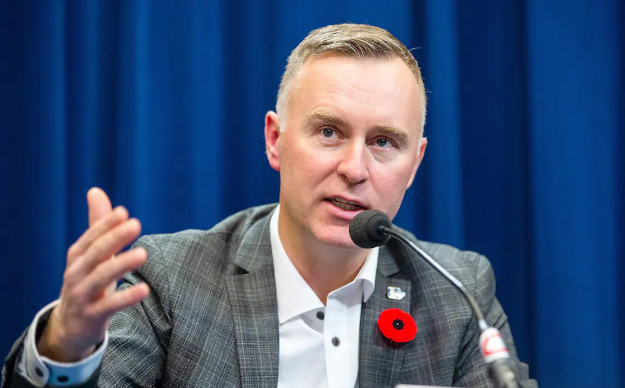Jocelyn Thibault knows a lot about hockey. In addition to a 14-year career in the National Hockey League (NHL), he served as Vice-President of Operations and General Manager of the Sherbrooke Phœnix, a Quebec Major Junior Hockey League team ( LHJMQ) of which he is still one of the shareholders. Since October, he takes place in the chair of the general manager of Hockey Quebec.
One of its mandates (possibly the main one) is to revive our national sport. Thibault is already on the lookout for what is being done in the four corners of the globe. Obviously, as the Greater Toronto Hockey League (GTHL) produces nearly 10% of NHL skaters, the former Nordiques and Canadiens goaltender wants to take a closer look.
“What I find interesting with the GTHL is that it is able to offer these young people an extremely high level of competition. She is able to do this because she has the pool of players, but also because she has the openness to get players from everywhere,” he noted.
Discussions
In Quebec, each basin is delimited by a watertight border. At the U18 AAA level (formerly known as midget AAA), a waiver system has been implemented to help territories with smaller pools. Thus, a player cut by a team finds himself in a draft system that can allow him to try his luck in another formation. For now, this is the only rule that comes close to those of the GTHL.

Is there an openness among the leaders of Hockey Quebec to imitate the Ontario metropolis by adopting a similar formula of hockey without borders?
“I know it’s starting to be talked about all over the country, but we’re not there yet. Currently, it is not a model that we are looking at, argued Thibault. At the moment, we are thinking more about how to improve the development sequence of our players.
The Award of Excellence
Thibault recognizes that the Toronto way of doing things stimulates a kind of leveling up.
“That’s what competition brings. It is certain that in a league where the players do not arrive naturally in the pipeline, that forces the organizations to be good.
Except that there is a reverse side to this coin. Offering the best facilities, the best coaching, and the best coaches comes with its price.
“How do you manage to provide major junior or NHL level coaching to a team of 15-year-olds without increasing the parents’ contribution? Midget AAA, in some places, already costs $10,000! That’s money!” remarked Thibault.
“Honestly, we have one of the finest Midget AAA leagues in Canada,” he continued. There are definitely areas for improvement. But what is important is to bring together the best 15-year-old players in the province. And that, we do.”
The teams of the Quebec circuit have reached the final of six of the last eight presentations of the Telus Cup, the emblem of the national supremacy of Midget AAA hockey. Which seems to prove Thibault right, at least collectively.
However, the problem of individual development remains unresolved.
“WE HAVE TO MAKE GOOD ATHLETES” – JOCELYN THIBAULT
While the GTHL seems to focus its program on early competition, Hockey Quebec prefers to opt for diversity.
“As decision-makers, we have the responsibility to encourage the development of athletes before specialization,” said Jocelyn Thibault, general manager of Hockey Quebec. In our system, there are many young people who devote themselves solely to hockey far too early in their life.
“Before the age of 13, it’s important to taste a lot of things, to develop your foundation as a multisport athlete, and to stimulate your motor development by doing a lot of activities,” he continued. If you specialize too young, you will miss tools later.”
During his 14-year career in the NHL, Thibault played with players from different countries. This allowed him to make the following observation: “I played hockey with Europeans and, regardless of whether we played soccer or tennis, they were good at everything. In their development system, young people have to do something else, said the former goalkeeper. Here, we should adopt the same approach. Basically, we have to make good athletes.
don’t kill hope
Thibault also wants to change the perception that a career is defined at a young age. This way of thinking, widespread in Quebec, contributes, according to him, to slowing down the momentum of players whose potential is slower to develop.
“Half of Quebecers who play in the NHL didn’t make midget at age 15. That means a lot. It means that the development is not finished”, hammered Thibault.

“We have to counter this desire for too fast performance. This is my big challenge. A hockey career is a marathon, not a sprint,” he continued.
Thibault cites as an example Félix Robert, who wore the colors of the Sherbrooke Phœnix for three and a half years after climbing the ladder slowly in the school system and in the RSEQ college league.
“This is a glaring example. He was never drafted into the QMJHL. When we invited him to Sherbrooke, he was 17 years old. Today, at 22, he is one of the best players on his team at Wilkes-Barre in the American League.
“I want more 20-year-olds in the QMJHL to continue to believe in it. Same thing for those who evolve in the Canadian university circuit, a level in which I strongly believe. They have to keep hope alive.

